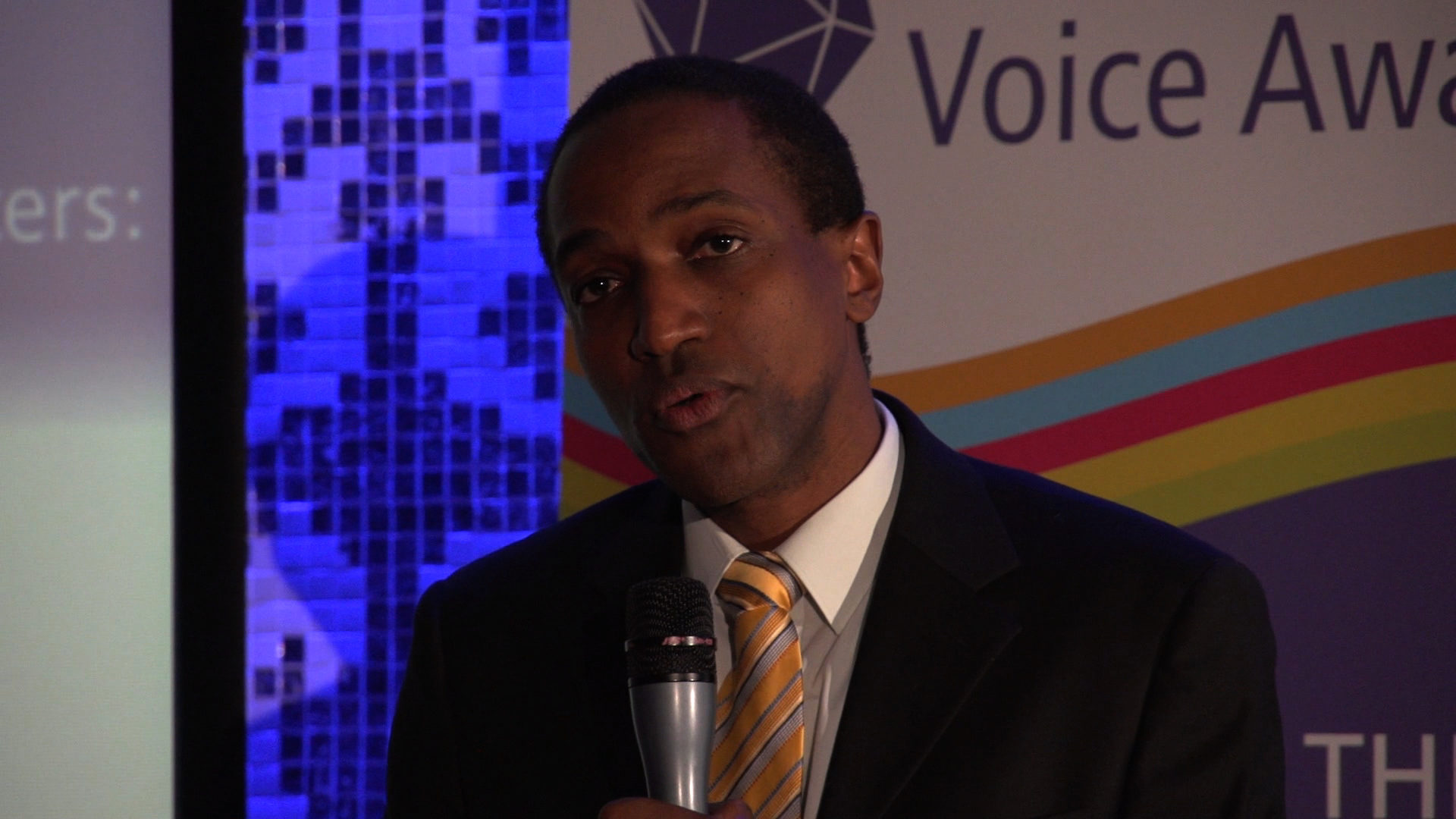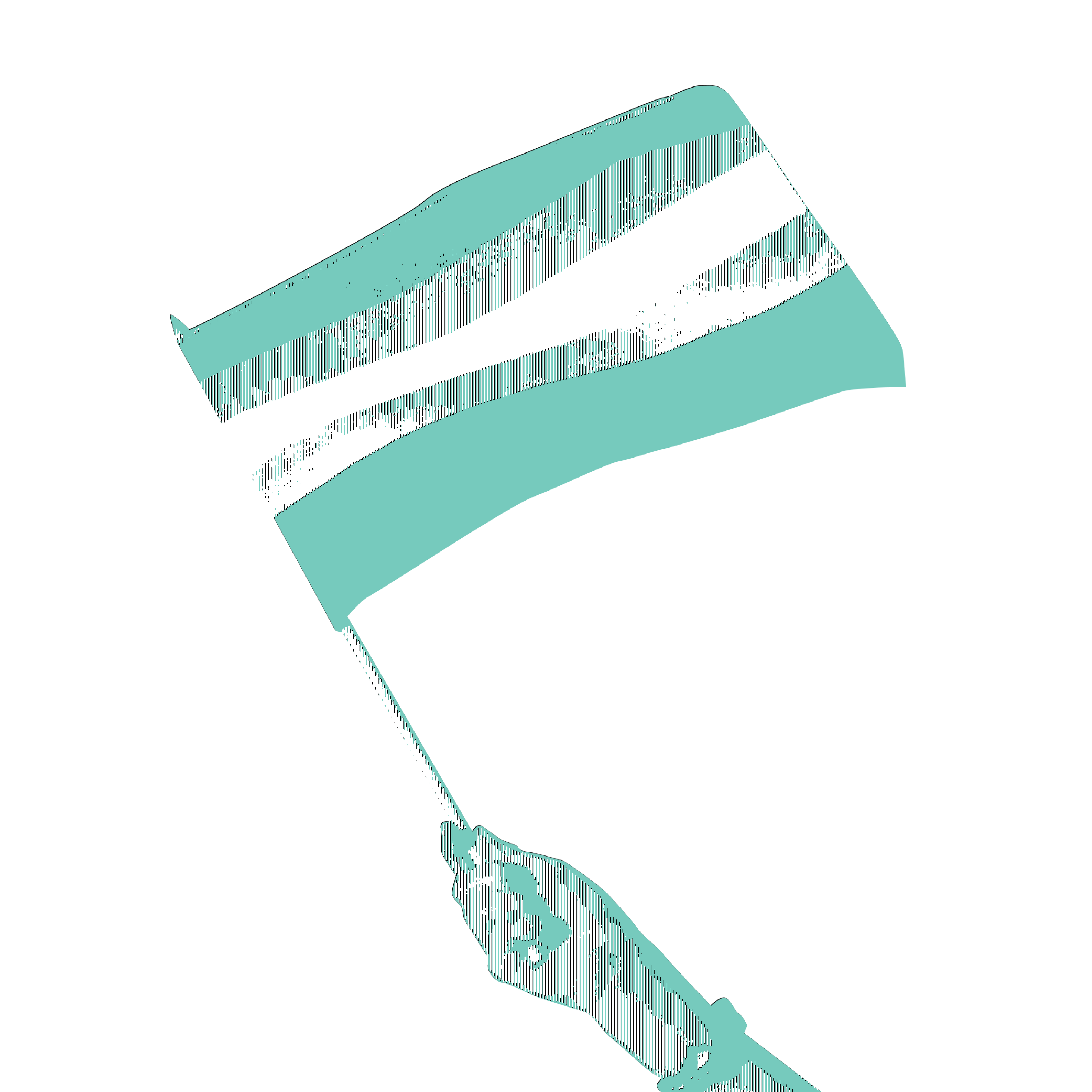
On January 7, 2012, Maurice Tomlinson, a Jamaican lawyer working as the legal advisor to AIDS-Free World, discovered that an article—complete with a photograph—about his marriage to another man in Toronto had been posted online by the Jamaica Observer.
"Jamaican activist married man in Canada," the headline proclaimed.
"The reality is that I've been the face of the LGBT movement, without being identified as a gay man in Jamaica," said Tomlinson from the sparely furnished office of his new home in Toronto. "That was necessary to maintain my safety, to maintain my credibility, to maintain my access.
"I had already received quite a few death threats simply because I had been publicizing the murders, the home invasions, the attacks," he said. "And I knew that this information getting out, that I was married to a man, would just make it worse. So very, very worse."
Jamaica is a small nation—and with a population of just under three million people, news travels fast. Within a few hours, the Observer article had attracted more than 20 online death threats, including several that identified his home, the make of his car, and his classroom and teaching schedule at the University of Technology, where he is on the law faculty.
A Legal Challenge
Just a few months earlier, on August 16, 2011, Tomlinson had filed the first-ever legal challenge to Jamaica's anti-sodomy law. This law, known as Article 76 of the Offences Against The Person Act, dates back to 1876 when Jamaica was still a British Colony, makes "the abominable crime of buggery" punishable by "imprisonment and hard labor for a maximum of ten years."
The case, filed with the Inter-American Commission on Human Rights, was brought on behalf of two gay Jamaicans, whose names are being withheld to protect their safety.
"These men experienced egregious human rights violations," said Tomlinson. "They were kicked out of their homes, stoned, verbally abused and in one case, a group of gunmen came to the man's home when he was away and told his mother he would have to leave, or they would burn down the house."
In both cases, said Tomlin, the police refused to take action when informed of the incidents. "This is because of persistent homophobia in the police force," said Tomlinson, who received death threats after filing the case. "When I reported the threats to the police, I was treated to a homophobic tirade," he said. "This lack of response is emblematic of the persuasive homophobia present in the Jamaican police force."
"The fact is, the anti-buggery law makes me—at least to the average Jamaican police officer—an unapprehended criminal with few, if any, human rights," Tomlinson told a packed audience last month when he was awarded the David Kato Voice and Vision Award. "Jamaica has been described as the most homophobic nation on earth," he added, while noting that reports of anti-gay violence have increased 300 percent in the last three years.
This award was created to honor David Kato, a gay Ugandan activist who was also outted by a local daily newspaper called Rolling Stone last year. The paper had printed his picture on the front page along with the pictures of other LBGT activists, and a caption that read: "Hang them, they are after our kids." Soon after that, Kato was beaten to death with a hammer.
"David was just like me, I think," said Tomlinson. "He was reporting on the abuses against Ugandan LGBT, educating society about the negative impact of homophobia, and just being regular Joes – and to be killed for that was just frightening."
Three days later, Tomlinson fled the country to join his husband in Toronto.
Tomlinson was lucky.
A practicing lawyer, he had the resources and a valid passport that allowed him to leave Jamaica at a moment's notice. Not everyone in Jamaica's gay community is so fortunate.
Tomlin's recent experiences reflect the very issues the lawsuit before the Inter-American Commission is seeking to address. "By criminalizing homosexuality, Jamaica is in violation of international human rights laws," the suit argues, and "feeds a homophobic society in which gays and lesbians are harassed, mocked, vilified, beaten and simply killed because of their sexual orientation." The case also argues that the Jamaican law, by criminalizing gay sex, "encourages vigilante justice by private citizens, most of whom believe that the law grants them permission to commit acts of violence against gays."
Impact of the Sodomy Law on HIV
AIDS-Free World also says the anti-sodomy law greatly increases the severity of the AIDS epidemic in Jamaica. The national prevalence of HIV in Jamaica is currently 32 percent among men who have sex with men, compared to a rate of 1.6 percent in the general population. "Driven underground, many gays fear that seeking an HIV test will brand them as homosexual, and therefore criminal, so they do not seek out medical treatment," says a recent press release by AIDS-Free World.
The law has also crippled the response of the Jamaican public health sector to address the AIDS epidemic, the group argues. "Because the anti-sodomy law is perceived to criminalize homosexuality as a whole, men who have sex with men are deeply unpopular in Jamaica, and the government is not anxious to be seen as providing 'special' services to them. Consequently, the Jamaican government uses the anti-sodomy law as an excuse for not creating adequate HIV-related health programs."
Tomlinson says the case could not be filed in Jamaica itself because of an amendment to the Jamaican constitution called the "saving law clause," passed in April 2011, which states that any pre-existing laws relating to sexual offenses such as the anti-sodomy law, pornography, or abortion are "saved" from constitutional review. Since the law could not be challenged in Jamaica, Tomlinson and AIDS-Free World instead brought the case before the Inter-American Commission on Human Rights.
"When we win the petition—and I really think we will—it will not be a binding decision on the Jamaican government. It will only be a recommendation. And what the government does with it will likely be determined by Jamaican public opinion," said Tomlinson.
What a finding will do, says Tomlinson, is raise awareness of the issue of homophobia and discrimination in Jamaica.
"It's a tool for us to advocate domestically so we can educate people about this law," he explained. "We've already begun to see some shifts and we've raised the visibility of the lesbian, gay, bisexual and transgender community."
A ruling against the law by the Inter-American Commission will also place international pressure on the Jamaican government to reexamine its anti-gay law, since Jamaica relies on goodwill for tourism, one of the country's main sources of revenue.
The strategy has also worked before. Lord Anthony Gifford, an attorney who successfully challenged Northern Ireland's anti-gay laws, is also part of the legal team challenging the Jamaican anti-sodomy law. In the Irish case, called Dudgeon v the United Kingdom, Gifford argued that a British law enacted in the 19th century criminalizing homosexual acts violated the European Convention on Human Rights.
The European Court of Human Rights agreed. It found that Northern Ireland's criminalization of homosexual acts between consenting adults was a violation of the European Convention on Human Rights. The result was that male homosexual sex was decriminalized in Northern Ireland in October 1982. The Council of Europe later cited this case when it ruled that member state could not criminalize male or female homosexual behavior.
- Document








